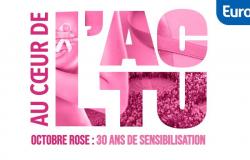– CHUV, environment and highways
Find your readers’ letters from October 14, 2024 here.
24hours / Readers
Published today at 7:22 a.m.
Subscribe now and enjoy the audio playback feature.
BotTalk
CHUV
Concerns the article “How the CHUV intends to avoid the deficit of 100 million expected in 2028” (“24 Heures” of October 11).
On September 27, Mme Ruiz, Minister of Health and CHUV, it should be remembered, pointed out that health insurance premiums only increased because of the salary and billing of established doctors…
Today, we are being revealed the CHUV financial recovery plan. And what do we learn? That to be more profitable, they will charge more! They “forgot to charge for things” and will expand the hours of use of MRIs and other x-ray machines. I remind you that radiological examinations, compared to a child psychiatry consultation that I practice for example, cost at least three times as much on an hourly basis!
I call it the hospital that doesn’t care about charity! The CHUV is crying over its fate with inflation and the increase in the cost of living which is weighing down its finances, but established doctors should reduce their income to lower health insurance premiums… look for the mistake!
The CHUV simply discovers that it must be more “efficient” in its terms, in other words more profitable, and that it can no longer continue to live on state drip. This is just what long-established doctors experience, welcome to the club!
At least, Mme Ruiz will no longer be able to say that it is the established doctors who charge too much, she will only have to look in her accounts to see that if we simply bill for what we do, this necessarily generates a certain cost to insurance companies. disease.
Dre Céline Langenberger-Jotterand, child psychiatrist, Lausanne
Vaud
In line with his predecessors – Daniel Brélaz the pioneer, Philippe Biéler, François Marthaler and… Béatrice Métraux –, I grant our State Councilor Head of the Department of Youth, Environment and Security, Vassilis Venizelos , three rare joint qualities, easily making it possible to distinguish a statesman from a politician (“politi-chien”, Coluche dixit!): intelligence, courage (already less widespread capacity) and integrity (virtue in disappearing, in this world where reign, as absolute masters, the dollar god and his procession of collateral “destructive-killer” effects, dear to our poet Gilles, denounced already in 1934)!
I will add a fourth, also precious, in these times of hyperpolarization: pragmatism. As proof, I take the presentation (in “24 Heures” on September 20) of his ambitious and realistic program, the future Vaud energy law, aiming for carbon neutrality in 2050, and this without nuclear power (for which he does not hardly has any hooked atoms). Decisive responsibility and priority, if there ever was one: because it is clear the urgency of acting with determination, before it is too late and the relevance of the choices, certainly difficult, to be made, together, to achieve this. achieve. Reason why, as a simple citizen, not affiliated with a political party, but concerned about the general interest, I hope that all sides (even… The Center!) go beyond their small partisan position to victoriously raise, through union sacred, this ambitious and noble challenge, so that the latter finds a saving “logical echo”…
Our living environment and our children and grandchildren will be very grateful to us. Thanks in advance!
Frank Paillard, Les Charbonnières
Environment
Insect hotels are very fashionable in these times of worries linked to climate change and their business seems to be doing wonderfully. Next to our small garden is the large garden of a foundation (this clarification to understand that no one lives at this neighboring address and takes advantage of this large maintained garden) in which one of these imposing insect hotels is installed… not to say paradise for insects. As for us, it’s hell from spring to fall. We cannot enjoy our garden, such is the concentration of insects around us: as soon as we go out into the garden to enjoy being outside, we get bitten. We have no other solution than spraying ourselves from head to toe with various repellent products, most of them chemicals.
These insect hotels are a great ecological boost, but if this requires us humans to use lots of sprays to protect ourselves, where is the real ecological gain? Or worse: staying indoors in good weather because it’s extremely unpleasant to be surrounded by all these insects. Shouldn’t we rather install these insect incubators in nature, outside homes? In addition, this has a real financial cost for us, and let’s not talk about the harmful effects of this type of product on our skin, particularly on that of young children. We would be happy to know what we can, objectively, reasonably undertake to make enjoying a garden also a paradise for us humans. Perhaps we can put our interest and well-being before that of the insects in the city?
Dana Dovat, Geneva
Highway
We can all agree on the need to resolve the problem of traffic jams on the highways. The first idea that seems the simplest, in any case the most immediate, is the third way. But is she the only one? Is it effective in the long term? It seems that based on experience, ten years later the traffic jams are reforming. We can imagine adding an additional lane every ten, twenty or thirty years. It depends.
A priori, it’s just a matter of finding the funding. The average citizen that I am must therefore choose between traffic jams or the third way. Imagine (as John Lennon would say) a situation where everyone can move faster than by car, without stress and in complete safety. Imagine that financing this solution does not pose a problem. So what would this solution be? Public transport is the simplest answer, in any case the most immediate.
Imagine that this solution costs five times more than the third way. It is of course unattainable. Imagine that Pareto’s law applies. We are then satisfied with 20% of the financing, the equivalent of that planned for the third way. As a result, only 80% of citizens benefit from this solution. 20% are forgotten. If these 20% continue to legitimately use their cars on the highway, the traffic jam problem is likely to be resolved, and hopefully in the longer term.
Of course in reality there is no “yaqua”. Neither “yaqua” add a third lane, nor “yaqua” develop public transport. It’s just brainstorming, but at least we’re trying to come up with reflex binary solutions.
Daniel Rupp, Échandens
Did you find an error? Please report it to us.
0 comments






